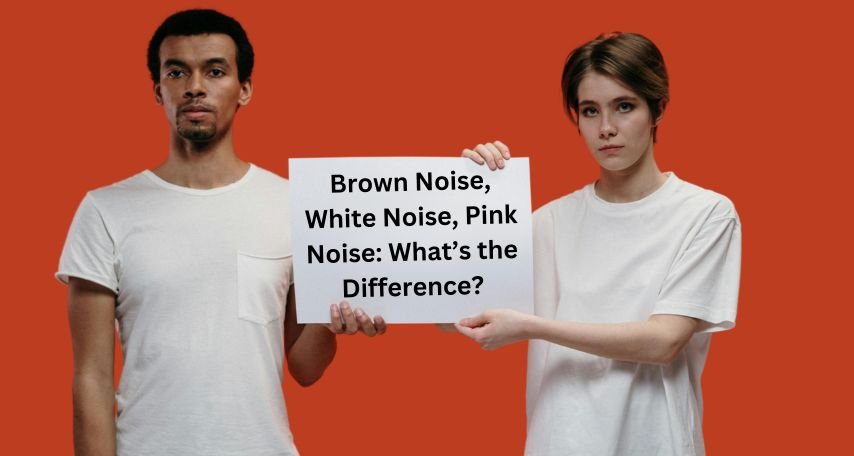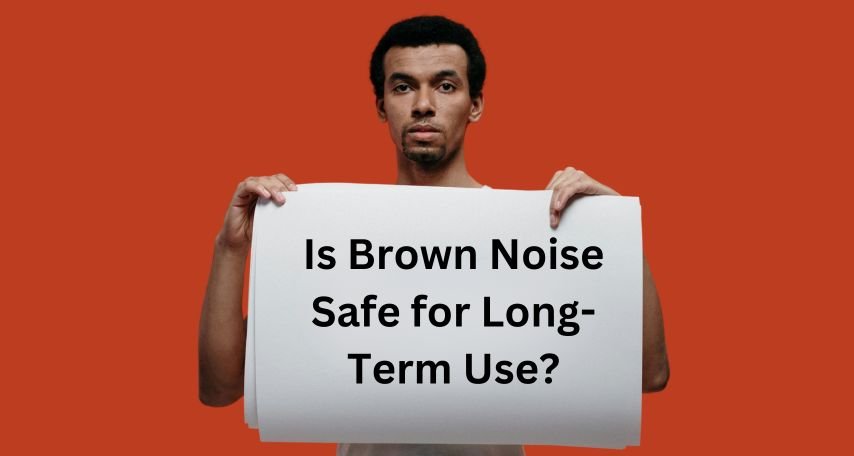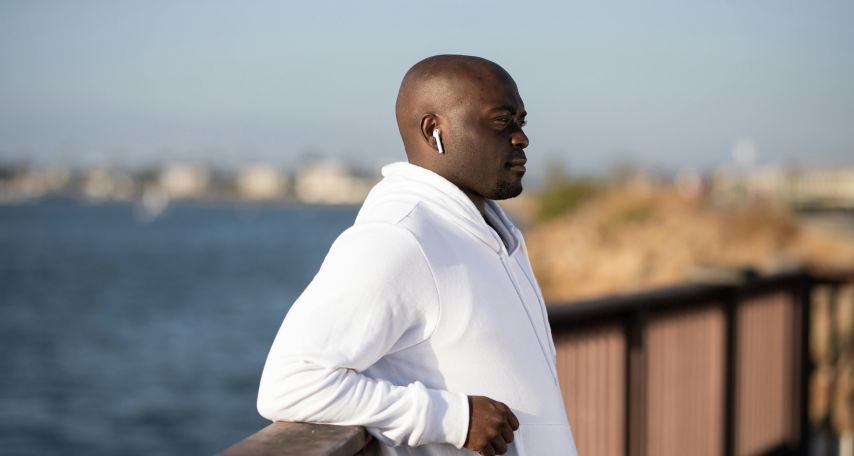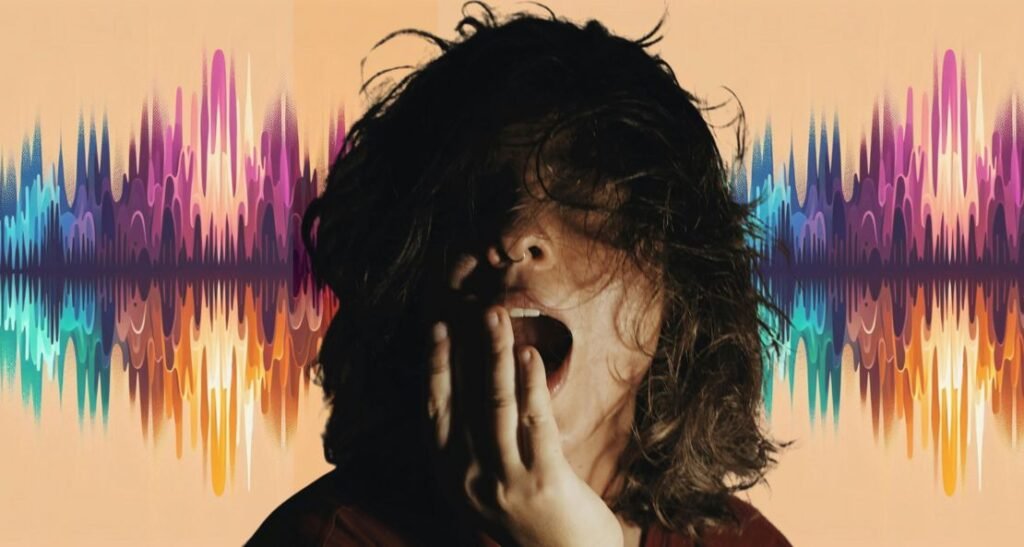Brown noise isn’t just another wellness trend floating around the internet.
It’s that low, rumbling sound, closer to the drone of a distant aeroplane or the continuous crash of waves.
Imagine white noise, but with more bass—the moodier cousin. While white noise might remind you of a TV with no signal, brown noise feels more like nature having a quiet moment (minus the annoying birds or cicadas).
So, why should you care? Because brown noise might be your new secret weapon for relaxation, focus, or getting a decent night’s sleep without reaching for the sleeping pills.
Brown Noise, White Noise, Pink Noise: What’s the Difference?

Picture the sound spectrum as a family. White noise is the overachieving eldest child—long, equal frequencies everywhere.
Pink noise is the middle child, a bit softer and more balanced, like gentle rain.
And then there’s brown noise, the youngest—deeper and smoother, with an emphasis on the lower frequencies while toning down the highs.
Imagine standing next to a waterfall (without getting soaked, obviously).
It’s calming, constant, and great for masking distractions. Whether you’re trying to concentrate or drift off to sleep, brown noise wraps you in a comforting sound cocoon.
For those who like the science behind it, brown noise mimics something called Brownian motion—a discovery by Scottish botanist Robert Brown that refers to the random movement of particles.
It’s a bit nerdy, but this gives the sound its name and its random, but soothing, quality. Cool, right?
Learn more about white and pink noise differences.
Brown Noise and ADHD: Miracle Cure or Just Background Buzz?
If you’ve been on TikTok lately, you’ve probably seen people rave about brown noise as a miracle for focus—especially those with ADHD.
But does it really work, or is it just another fleeting trend?
For some, brown noise works wonders, quieting the chaos inside their heads and letting them concentrate.
TikTok’s ADHD community has embraced it for its ability to “blanket” the mind, silencing that pesky internal monologue.
Users often describe it as the auditory equivalent of putting a pillow over all the noise.
The research, though, is still limited. Experts believe brown noise helps by blocking out external distractions, which can make it easier to focus.
So while it’s not a magic fix for ADHD, it could be a helpful tool—especially if you find yourself flitting from task to task without ever finishing anything.
Read more about brown noise and ADHD.
Can Brown Noise Really Help You Sleep?

If you’re lying awake at night, wondering how to get some solid shut-eye, brown noise might be worth a try.
By masking those irritating sounds (like your partner’s snoring or the neighbour’s car alarm), brown noise creates a soothing backdrop that can help you fall asleep faster and stay asleep longer.
It’s why more people are replacing their white noise machines with brown noise options—less harsh, more calming.
That said, brown noise doesn’t work for everyone. Some people find it ideal, while others might find it too dull or even slightly anxiety-inducing.
Like anything, the only way to know if it works for you is to give it a go. Read more about how sound affects sleep.
Is Brown Noise Safe for Long-Term Use?

Good news: there’s no significant danger in listening to brown noise for long periods, as long as you keep the volume reasonable.
Experts recommend staying below 70 decibels to avoid any risk to your hearing.
And no, despite what you might have heard, brown noise won’t turn your brain off permanently.
Some people report feeling “brain-blanking” effects, but that’s more about reducing mental noise, not causing actual harm.
In fact, many find that brown noise helps them focus or fall asleep without the annoying high-pitched frequencies of white noise.
Just make sure you’re not blasting it at full volume—your ears will thank you later.
Does Brown Noise Help Everyone Relax? Or Does It Make Some People More Anxious?

Here’s where it gets a bit complicated. Some people swear that brown noise calms their racing thoughts, while others claim it makes them feel more on edge.
Why?
For those used to a constant stream of internal chatter (looking at you, ADHD crowd), silencing it can feel a bit weird.
It’s like turning off the background TV in the middle of a busy room—some brains actually miss the noise.
There’s also something called stochastic resonance—a theory that suggests adding the right kind of noise, like brown noise, can help your brain filter out distractions and focus better.
But for others, the absence of familiar mental noise can feel unsettling. You’ll have to try it to know which side of the fence you fall on.
Where Can You Get Your Brown Noise Fix?
No need to trek through forests or wait for a thunderstorm. Thanks to modern technology, you can find endless streams of brown noise on Spotify, YouTube, and even dedicated apps.
Whether you’re trying to focus on work, drift off to sleep, or simply zone out, it’s all right there at your fingertips.
If you live in a noisy city, brown noise might even help drown out the urban chaos and give you some peace and quiet.
Is Brown Noise the Right Choice for You?
So, should you hop on the brown noise bandwagon? Honestly, it depends.
Some people swear by it for focus, relaxation, or sleep, while others just find it background noise that doesn’t do much.
The best way to find out is to give it a try—worst case, you turn it off and move on with your day.
Best case, you’ve found your new favourite way to block out the world.
Final Thoughts: Is Brown Noise Overhyped or Underappreciated?
At the end of the day, brown noise isn’t a magic cure, but it’s also not just another trendy sound.
Whether it helps you focus better, sleep more soundly, or just makes your environment a bit more pleasant, it’s worth experimenting with.
After all, it’s just noise—what’s the harm in seeing if it works for you?
For more information on brown noise, you can also check out the Neon Music guide on Understanding Brown Noise.


